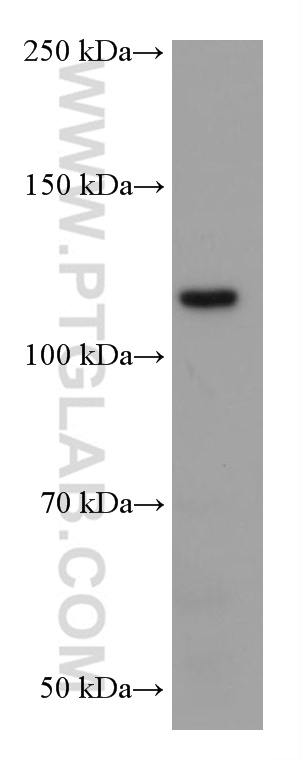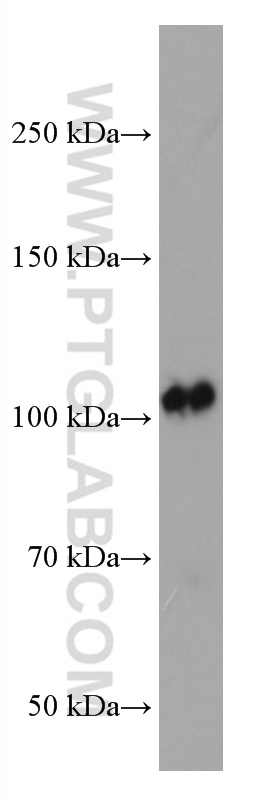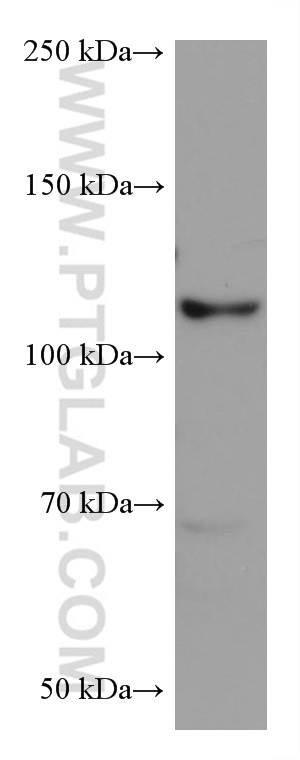EPHB1 Monoclonal antibody
EPHB1 Monoclonal Antibody for WB,ELISA
Host / Isotype
Mouse / IgG2b
Reactivity
Human, Mouse
Applications
WB,ELISA
Conjugate
Unconjugated
CloneNo.
1B7C12
验证数据展示
经过测试的应用
| Positive WB detected in | mouse cerebellum tissue, mouse brain tissue, fetal human brain tissue |
推荐稀释比
| Application | Dilution |
|---|---|
| Western Blot (WB) | WB : 1:1000-1:4000 |
| It is recommended that this reagent should be titrated in each testing system to obtain optimal results. | |
| Sample-dependent, Check data in validation data gallery. | |
产品信息
67080-1-Ig targets EPHB1 in WB,ELISA applications and shows reactivity with Human, Mouse samples.
| Tested Applications | WB,ELISA |
| Tested Reactivity | Human, Mouse |
| Immunogen | EPHB1 fusion protein Ag16347 种属同源性预测 |
| Host / Isotype | Mouse / IgG2b |
| Class | Monoclonal |
| Type | Antibody |
| Full Name | EPH receptor B1 |
| Synonyms | EK6, ELK, EPH like kinase 6, EPH receptor B1, EPHB1, Ephrin type B receptor 1, EPHT2, FLJ37986, Hek6, NET |
| Calculated Molecular Weight | 984 aa, 110 kDa |
| Observed Molecular Weight | 110-120 kDa |
| GenBank Accession Number | BC111744 |
| Gene Symbol | EPHB1 |
| Gene ID (NCBI) | 2047 |
| RRID | AB_2882388 |
| Conjugate | Unconjugated |
| Form | Liquid |
| Purification Method | Protein A purification |
| UNIPROT ID | P54762 |
| Storage Buffer | PBS with 0.02% sodium azide and 50% glycerol pH 7.3. |
| Storage Conditions | Store at -20°C. Aliquoting is unnecessary for -20oC storage. |
背景介绍
实验方案
| Product Specific Protocols | |
|---|---|
| WB protocol for EPHB1 antibody 67080-1-Ig | Download protocol |
| Standard Protocols | |
|---|---|
| Click here to view our Standard Protocols |


